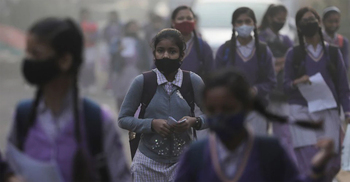Barcelona students to take mandatory climate crisis module

All students at the University of Barcelona will have to take a mandatory course on the climate crisis after the establishment agreed to meet the demands of activists conducting a sit-in occupation.
In a move thought to be a world first, all 10,000 graduate and postgraduate students will have to take the course from the 2024 academic year. It will also devise a training programme on climate issues for its 6,000 academic staff.
The announcement came after a seven-day occupation by a group from the anti-fossil fuel organisation End Fossil Barcelona.
“To recognise that we all have to study this marks a change in the paradigm of university education,” said Federico Demaria, an economics professor at the university and one of 200 who backed the students’ demands.
“The trigger was the student occupation but it shows a general cultural change. Ten or 15 years ago the university would have sent in the police. But now you can’t kick them out because you know they’re right and society supports them.”
“It’s not just another course on sustainable development,” said Lucía Muñoz Sueiro, an End Fossil activist and PhD student at the university. “It combines the social and ecological aspects of the crisis, which are interrelated.”
Student and activist Lorenzo Velotti said he was disappointed that the university refused to accede to the group’s other main demand, that it reject funding from the oil company Repsol and other businesses that profit from fossil fuels.
A committee of experts and academics largely nominated by the activists will meet to discuss the content of the course. They include Jofre Carnicer, who sits on the International Panel on Climate Change.
Velotti said End Fossil put forward names of professors with established reputations in the field of the social and economic consequences of climate breakdown and that the university had agreed that these nominees would make up 60% of the commission tasked with devising the course.
The course will be worth five credits. Each credit represents 25 hours of study: 15 at home and 10 in class. With 50 teaching hours in class, the university is likely to need to hire more staff.
The university said in a statement that it was “fully committed to working towards the eradication of the causes of the climate emergency and to mitigating its consequences”.
The decision to launch the course came as Isabel Diáz Ayuso, the conservative president of the Madrid autonomous region, said in a speech that there had always been climate change and dismissed “apocalyptic claims” as part of a communist plot.
Source: The Guardian







